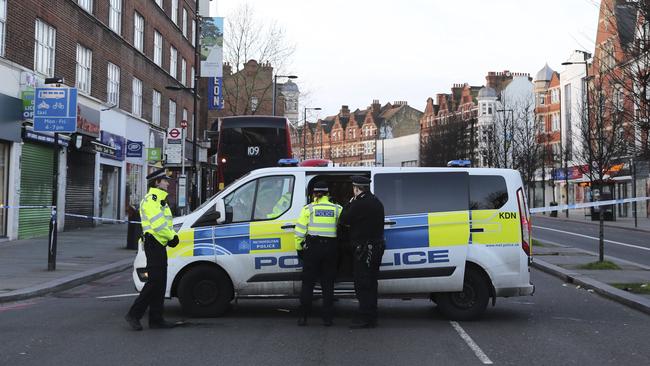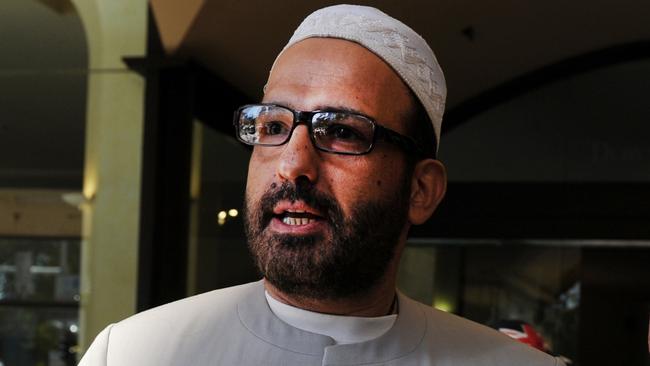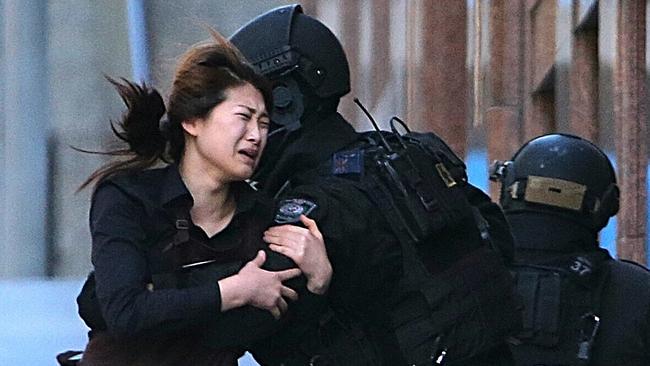Continued Detention Orders are the solution for Australian terror threats
Ten criminals serving time on terror charges are set for release this year. Simply hoping they will ease their way back into society without incident is not enough to keep us safe, writes David Penberthy.
There are 10 men serving the tail end of their sentences in Australian prisons on terror charges, all scheduled for release this year.
Their impending freedom has triggered an armchair debate involving civil libertarians and the Law Society about how you balance public safety with individual freedoms.
There is already disquiet about the proposed use of controversial new powers under the so-called Continued Detention Orders, CDOs, which allow police to seek to extended incarceration for up to three years for offenders whose sentences have expired, but who can be proven to pose an ongoing threat to the community.
While the AFP and state police services are yet to confirm whether they will seek to use the powers, the criticism is already being made that post-sentence detention is a breach of both the common law and human rights laws.
To which those of us who aren’t lawyers would reply: so what?
If you are looking for a case study that kicks this issue out of the realms of armchair debate and into a more tangible real-life setting, it comes courtesy of the most recent terror attack in the UK and involves a now-dead fellow by the name of Sudesh Amman.
Amman pleaded guilty in November 2018 to six charges of possessing documents containing terrorist information, and seven charges of disseminating terrorist publications. He was sentenced in London’s Old Bailey to three years and four months but was freed on January 23 this year after serving just half of that sentence.

His movements were still restricted, in so far as he had to wear a GPS tag, surrender his passport and keep away from exclusion zones such as ports and airports. He was limited in his internet use. But he was free to move around his neighbourhood and do pretty much as he pleased, which is exactly what he was doing on Sunday, February 2, just days after his release from jail, when he stole a knife from a store in the quiet London suburb of Streatham and randomly stabbed three people.
He did all this while under surveillance, which helps explain why the police were on the scene so quickly and able to shoot him dead.
While this swift and lethal response was welcome, I am still not sure if the entire scenario can be regarded as an unadorned win for the good guys. We can probably do better than sit around waiting for known terrorist sympathisers to start actually stabbing people before we move in.
The circumstances surrounding the Streatham attack are the subject of an ongoing inquiry by the London Assembly Police and Crime Committee where Britain’s most senior police officer, Met Police Commander Cressida Dick, gave evidence two weeks ago.

There was one key passage in the Commander’s evidence that goes to the core of the debate we will be having this year in Australia about the aforementioned 10 Islamic terrorists and terror sympathisers scheduled for release.
“I wish I could assure the public that everybody who poses a risk on the streets could be subject to some sort of thing that would stop them being able to stab anybody ever, but it is clearly not possible,” Commander Dick said.
Well there is in Australia, and it’s called a Continued Detention Order.
We have already had our own instance of homegrown terror where a person known to authorities, Man Haron Monis, was wrongly regarded as a harmless nut but ended doing real life-ending harm in the Lindt Cafe attack.
The position of the legal purists and human rights lawyers seems to be we should keep standing around with our fingers crossed.
The fancy word for that is the balance of probabilities. In a real-life sense, it balances the offender’s probability of being rehabilitated against the probability of you getting a knife in the ribs.
But we are told we should cross our fingers and hope these demonstrably bad people, with criminal convictions proving their badness, will somehow ease their way back into society without incident. And we should do so even though they have shown no interest in rehabilitation or deradicalisation – and indeed in some cases have shown an open hostility towards the concepts.

The idea of human rights is an interesting one when you consider what some of these whack jobs had in mind for the people of Australia.
There’s blokes such as Bilal Khazal, the former Sydney baggage handler who underwent terrorist training in Afghanistan and was named in a CIA report as being Osama bin Laden’s key contact in Australia. Khazal had drawn up a terrorist manual outlining his murderous plan for Australia’s civilian population.
There were Victoria’s “tinnie” terrorists, the four men intercepted towing a boat to Queensland with the intention of sailing to the Philippines to overthrow the government.
The most serious of the lot is Abdul Nacer Benbrika, who was found to be the mastermind of the biggest terror plot ever uncovered in Australia, the 2005 Pendennis conspiracy.
The Algerian-born radical preacher had devised plans to bomb Melbourne’s Crown Casino, the Australian Tax Office, the 2005 AFL grand final, and the 2006 Australian Grand Prix, as well as to assassinate the then prime minister John Howard.
Benbrika is scheduled for release this year. He’s shown no intent of recanting on his hatred of Australia or his adherence to radical Islam. Apparently we are meant to let him waltz back into the community.
The Streatham attacks show that even with the supposed protection of ongoing surveillance, guys like these still can’t be trusted to behave according to standards of civil society.
And with these Continued Defence Orders now at our disposal, we can take these creeps out of circulation and save the police the hassle of monitoring them anyway.
And as for Benbrika’s human rights, I’d argue that my human right to stand at the footy and eat a pie without a bomb going off under my seat trumps his desire to walk freely in a country he clearly cannot stand.

